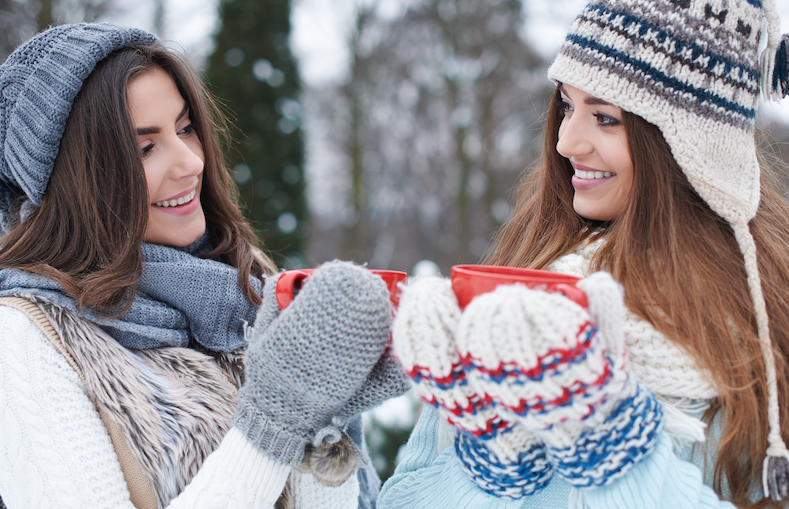I’m a firm believer in stocking up to ward off seasonal dramas; it’s the Irish mammy in me. I buy SPF in spring (very optimistic of me, I know) and, at this time of year, I try to anticipate what will be handy to have in the cupboard as the nights close in.
I live in Cork City which we jokingly say is situated in a bog, surrounded by chemical factories. My family is very sinus-prone and all get blocked up and stuffy very quickly. Manually dissolving any goo up there will help open up the airways and disinfect the passages. A warm saline solution can be made with cooled-down boiled water with pure sea salt added. You can buy a neti pot or nasal rinse bottle to administer, just don’t let anyone you fancy seeing you doing it! A nasal spray, like Sinuforce, may be a convenient and easy alternative. I try to eradicate any congestion as inflammation, or congestion of the airways can leave you vulnerable to infection.
I love to use the herb Plantago. We used to call it ‘Soldiers’ back in the day when
kids played with weeds. Herbalists will often use Plantago to decongest the
ear/nose/throat and sinus passages, and will also recommend it for both dry nose
conditions, nasal drips and glue ear. Here’s a post lockdown tip: If you are prone to cabin pressure-earache when travelling, Plantago can be used for a couple of weeks before you fly.
A decent night’s sleep is vital. There’s significant evidence linking poor sleep to impaired immunity
1 . It’s as important to have a regular sleep routine as it is to get the hours at rest. In other words, it’s important to go to bed at the same time every night (preferably before 11 pm). This is due to something called the circadian rhythm, which is your 24-hour body clock. Interestingly, this will change slightly as you get older, which is why teenagers like to stay up late and an older person may do better with an earlier bedtime. You may notice that you feel tired around the same time every day and maybe full of beans at other times. This is worth paying attention to, as it gives you a clue about your body clock.
Make going to bed a cosy ritual: embrace those fleecy PJs or have a romantic
snuggle - I read a recent study on hugging and its positive effects on stress and
immunity
2 .
Back on the subject of my winter hoarding - If I had to pick a desert island must-have
for the immune system, it’s going to be the herb Echinacea, of course. I use the
drops because I find they work better and faster. I gargle with it if I have a sore throat
or dab it on pimples. I have in in my pocket for the whole winter – a spray format or a
chewable tablet is handiest for being out and about.
I also take the HSE recommended dose of vitamin D daily with a multivitamin.
Alternatively, I’ll use a one-a-day tablet of A.Vogel’s Immune Support with
nasturtium, vitamin D, vitamin C and zinc.
It’s important to remember that the body doesn’t make, or store, zinc and vitamin C so we need a daily supply in our food. Supplements are convenient but, ideally, we should be getting as many nutrients as we can in our dinners, lunches and
breakfasts. Fruit and vegetables are good sources of vitamin C, especially citrus,
berries, Brussels sprouts, broccoli, and even potatoes. Zinc is found in shellfish, lean meat, whole grains (oats, brown bread, etc.), nuts and seeds.
The herbs ivy and thyme are traditional chesty cough remedies, while spruce
(Christmas tree) is considered better for dry and tickly coughs.
I can develop cold sores when I am run down so I carry a propolis lip balm in my
handbag all year round so that I zap any trouble ASAP.
Finally, I’m a big fan of hot drinks in winter and especially if I am unfortunately struck down with a respiratory ailment. One clinical trial found that any old ordinary hot drink can reduce cold symptoms like sneezing, coughs and tiredness
3 . Echinaforce
Hot Drink is one of my favourite remedies - it’s a lovely, comforting elderberry cuppa that will help fight cold and flu symptoms.

Sarah


